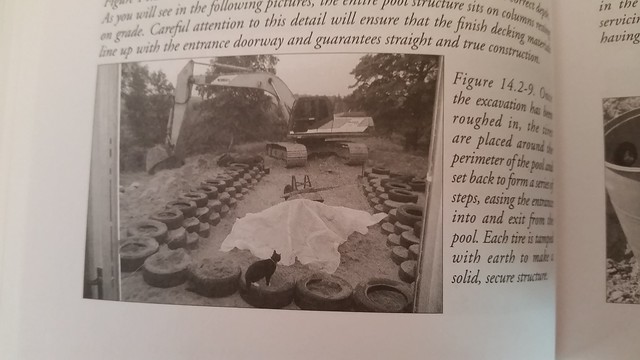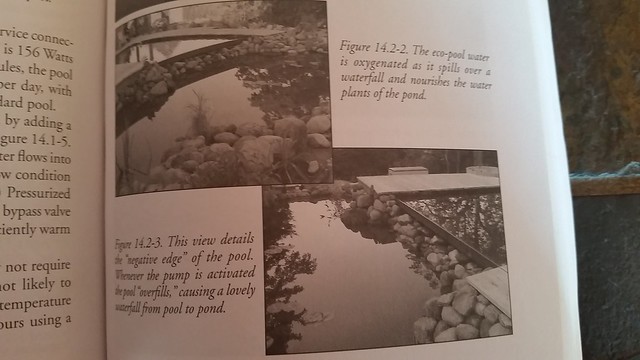If you are thinking of adding a pool to your property this spring; make sure you don’t overlook a natural swimming pool. They not only increase your property values, but also provide numerous environmental and permaculture benefits. A DIY swimming pool is much larger project and costs more then the previous pond construction build we had shared, but the basic construction process is the same.
According to the makers of the video above nutrient levels in an organic pool are carefully balanced so competition for the limiting nutrient (usually phosphorous) is fierce. This causes pond plants to outperform algae and helps keep it under control. If an undesirable micro-organism such as E. coli enters the pool, it must compete with other pond dwelling micro-organisms that will either starve or devour it. A water analysis of the natural pool water above shows zero organisms of E. coli per liter of water.
For those with soil that is not ideal for digging a DIY swimming pool you can actually build an elevated one out of tires as seen in The Renewable Energy Handbook. In the book they show you how to build two pools; a main one and one that acts as a bio filter. Water flows down into the filter pool where plants and aquatic life clean the water. It is then pumped back into the upper pool for swimming purposes. You can see below the basic construction method.
Excavate and terrace tires to form the pool

Form the edge

Build a deck around the edge

Lay out the liner

Fill your pond

Enjoy your new backyard Oasis

To find out more information about the pool in the video click on the link below.
The World’s Favorite Natural Pool Design
If you decide to build your own version feel free to share your project with us; we love seeing what others are doing!
The Renewable Energy Handbook, Revised Edition
This revised edition of The Renewable Energy Handbook focuses on the unique requirements of off-grid living as well as using “green” energy for homeowners who remain connected to the electrical utility. The book contains chapters on: Energy efficiency and economics, Home heating and cooling and domestic water heating, Photovoltaic, wind, and micro-hydro energy generation, Battery selection and inverters, Backup power, wireless communications, etc.






My main concern about this is SNAKES, how do you keep them out
[…] If you like swimming in a lake or pond, then this DIY swimming pool is your cup of tea! This pool looks adorable, and helps cool you off on a hot summer day. These natural swimming pools increase property value, and add an abundance of environmental benefits as well. To see you go to guide for a natural swimming pool, click here. […]